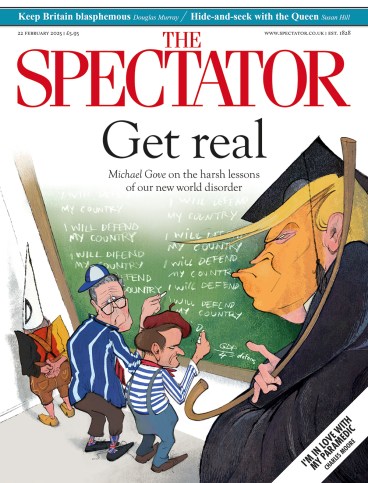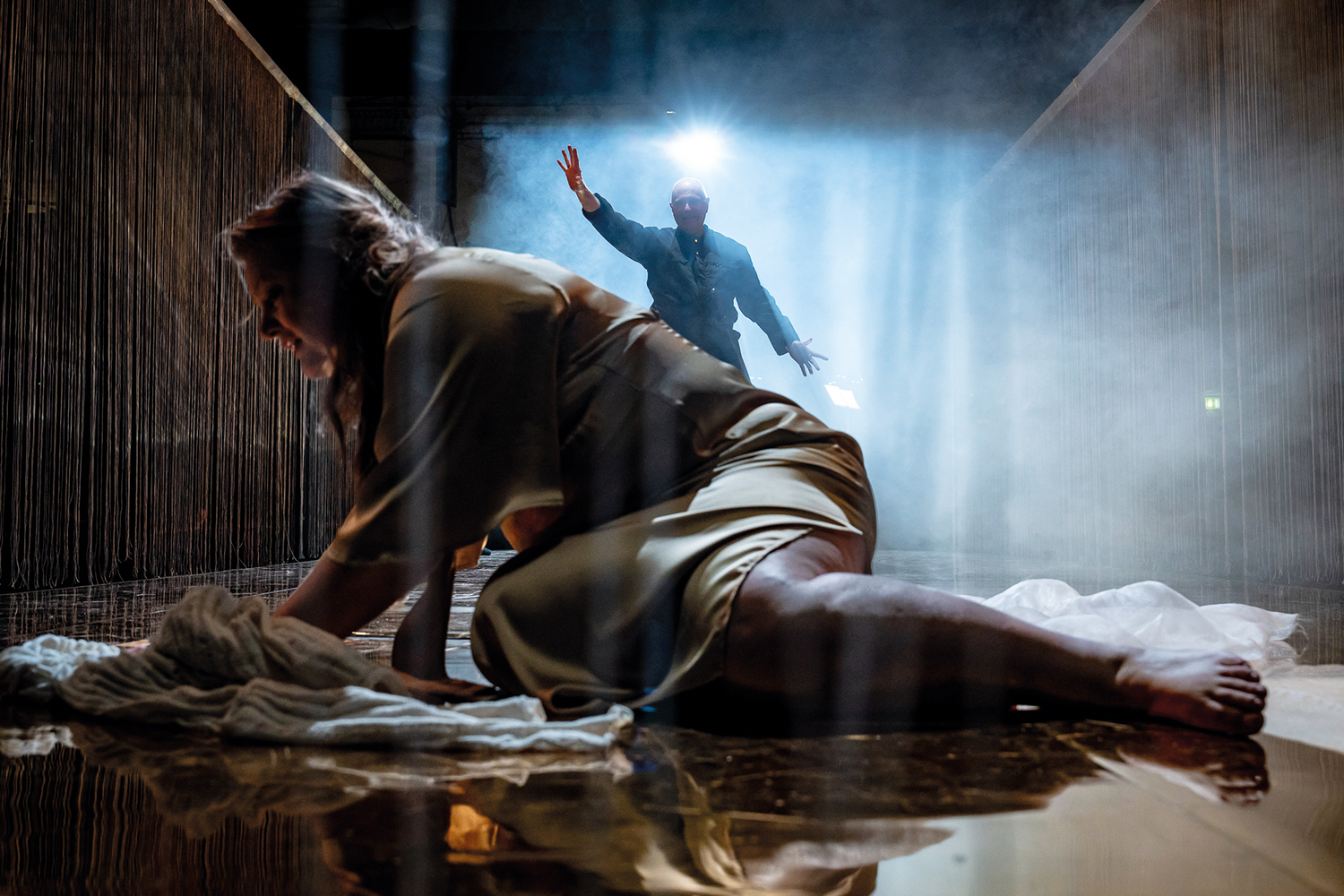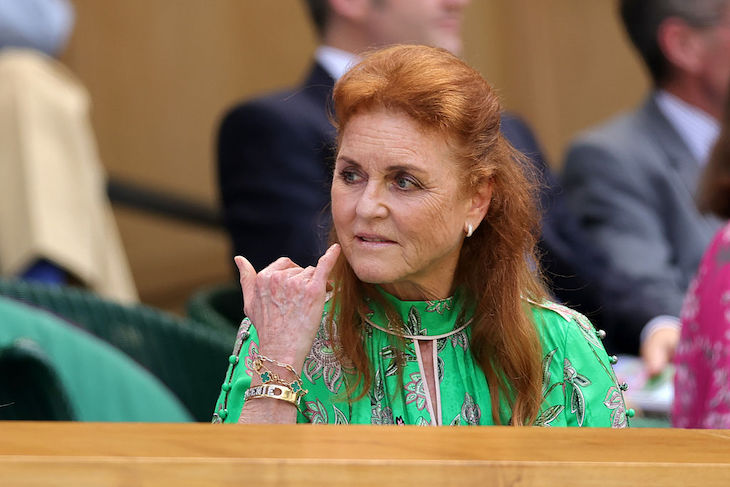
I saw the world end in a Bethnal Green leisure centre. Regents Opera’s Ring cycle, which began in 2022 in Freemasons’ Hall in Covent Garden, has found its culmination and completion at York Hall, a rundown public bath better known for championship boxing. Tower Hamlets security staff scan you for concealed weapons on the way in, which is not exactly typical at the opera. Still, the Ring is not a typical opera – and isn’t art supposed to feel dangerous?
But once you’re inside – and as long as you’re not seated within earshot of the bar staff, who clatter and chatter throughout – Caroline Staunton’s scaled down production transfers seamlessly; in fact, the sightlines are better. The same 24-piece orchestra, the same catwalk stage surrounded on three sides by the audience, the same white minimalist settings by designer Isabella van Braeckel. And the same rather facile relocation of the action to the contemporary art world, a universe that’s surely far more alien to most viewers than the swords and spears of Wagner’s myth.
Ultimately, I’m not sure that the concept matters very much, and anyway, it recedes as the cycle progresses. What we really want to know about any new Ring is whether Wagner’s enchantment endures; whether he still pulls you in with that first E flat of Das Rheingold and throws you out, shaken, after Gotterdämmerung into a world that no longer feels quite the same, at least until your dreams return to normal. The answer here has to be yes. On its own terms, the Regents Opera Ring cycle is a formidable achievement.
It certainly has a strong cast. No one undertakes a Ring cycle lightly but from the very start of Das Rheingold (three self-assertive Rhinemaidens, and an Alberich, Oliver Gibbs, who sang throughout with an eruptive, pitch-black physicality) the singing kept on exceeding expectations. By the end, well, Brünnhilde carries everything and Catharine Woodward’s performance – from the boisterous biker girl of Die Walküre through a painfully believable awakening in Siegfried, to the final scene, where her singing was as sunlit and exalted as her demeanour – would thrill any Wagnerite. Her exchange with Waltraute (Catherine Backhouse) seemed to freeze time; but then, this Brünnhilde is the daughter of a particularly self-possessed and eerie Erda (Mae Heydorn)
On its own terms, the Regents Opera Ring cycle is a formidable achievement
If any one performance stood out from the whole, though, it was Peter Furlong’s Siegfried. In Staunton’s conception, he is a youth with a mental disorder (his horn call is a symptom of a seizure) and an air of puzzled vulnerability, sung by Furlong with intense attention to the text and a vaulting, hair-tingling energy. We’ve seen that Staunton’s Alberich is a disruptor – a perversely creative force – and as Hagen, Simon Wilding is more sinister and restless still. Staunton departs from Wagner’s text to turn him into a serial killer, but by this stage you swallow it, just as you swallow her notion of an uptight, pre-defeated Wotan, played by Ralf Lukas as if he were a tetchy Radio 3 producer. Lukas assumed the role last year after the death of Keel Watson, who left large shoes to fill (a tiny scrap of his performance can be heard on a Regents Opera excerpts disc).
Almost every characterisation offers something fresh and thought-provoking: an emotionally scarred, ardently sung Siegmund and Sieglinde (Brian Smith Walters and Justine Viani), a genuinely creepy Fafner, and the most persuasive (I don’t say relatable) Fricka I think I’ve seen. The gains from this sort of chamber-scaled Wagner were very evident: there’s a lieder-like clarity to the words, plus the thrill of physical proximity. Ben Woodward conducted and there was never any question of the singers being overwhelmed, while his skilful reduced orchestration (which included an organ) brought out echoes of Wagner’s romantic forebears – Schumann, Schubert, even Mendelssohn.
Get down to that leisure centre, keep an open mind, and pack your imagination
The downsides? For Wagner, the colour and dynamic range of a full symphony orchestra wasn’t merely incidental. It was (his words), ‘the soil of endless, universal feeling’, and at the moments when he demanded them, you really missed the percussion and harps. It’d be a bleak day if reduced Wagner became accepted as the norm. Similarly, Wagner’s big visual effects are unachievable and Staunton’s production finds work-arounds rather than really convincing solutions. Like most stagings in the round, any sense of immersion is undercut by the sight of the audience and at any given moment you have only a partial chance of seeing what’s happening on a performer’s face, or hearing their voice in its unobscured directness.
Still, that’s the deal here. No one pretends otherwise and as with any serious attempt to engage with the Ring the emotional, spiritual and intellectual pay-off is still far beyond anything you’ll encounter in the normal run of opera. Or, for that matter, TV, cinema or straight theatre. Get down to that leisure centre, keep an open mind, and pack your imagination. But you were going to anyway, weren’t you?








Comments